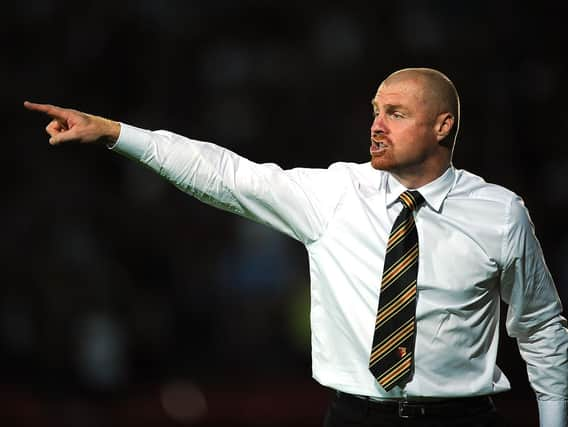Burnley boss Sean Dyche on what he has learned in a decade as a football manager


Malky Mackay left Watford for Cardiff City in June 2011, and Dyche, his assistant, took over the reins at Vicarage Road, his first game in charge, ironically, coming at Turf Moor against Eddie Howe’s Burnley - a 2-2 draw in August that year.
And while Dyche left Watford the following summer, having led the club to their best finish in four years, as the Pozzo family takeover led to Gianfranco Zola being appointed, he wouldn’t spend long out of the game, taking over from Howe at the end of October.
Advertisement
Hide AdAdvertisement
Hide AdIt looks like next season will be a sixth-successive season as a Premier League manager, and seventh in eight, but what has Dyche learned over the last 10 years in the hot seat? There’s so many things, I’m always reality-bound, I don’t get too high with the highs or too low key with the lows, until the season is finished, because that’s when it counts.
“The balance of your own understanding of yourself is important, I think, in the media and what you deliver through that - that’s grown enormously.
“You have to adapt to that side of life, lots of media, lots of social media.
“I think the biggest thing is you have to find a kind of coat of armour, because you’re going to get a bit of stick along the way, and I have done.
Advertisement
Hide AdAdvertisement
Hide Ad“People who don’t know you are going to make decisions on who you are and write about who you are without even knowing you, so you have to deal with that.
“You have to be game ready for the people around you, your family and friends, because they are going to understand or come to understand how your profile changes, more so in the Premier League.
“So they are things off the pitch, and on it, you haven’t understand the realities- it’s a tough challenge, any level of management is tough, the Premier League is just more exposed.
“You’ve got to be easy to take the knocks.
“All of us know in life stuff generally looks after itself, so the reason I’m talking about the hard stuff is not because I’m over-egging it, its because the good stuff looks after itself, when you’re playing well, the team is performing well, everything just seems to sit into place nicely.
Advertisement
Hide AdAdvertisement
Hide Ad“When you lose a few, you think you’ve got to start ripping up everything, and you have the decision to do something, or do nothing, and you carry it with you virtually all the time.
“First lockdown was probably the first period in management when I genuinely was only interested in how clean I could get those slats with my jet wash!”
The media side of his job has grown exponentially, especially in the Premier League, so what advice would he give to himself in 2011?: “There’s a million things, keep this (mouth) quiet, keep these (eyes and ears) open a bit more, there’s that many things.
“When you’re in it, you just keep going and going and going, you haven’t got a chance to sit back and reflect on it, so maybe when my time comes out of the game, maybe you sit back and think ‘Where was I? Where am I now? What are all the things along the way?
Advertisement
Hide AdAdvertisement
Hide Ad“Doing the media, you just pick it up, you learn, the trick questions...sometimes you put a deliberate hook line out there.
“I tend to be authentic with it, but I know managers who have deliberately thrown stuff out there.
“All this becomes natural, some of it is subliminal, some of it you on reflect and put it down on paper sometimes, the snippets you think are important.
“A lot of it becomes a natural part of you, what you are, and that can be tricky as well, people meet you in person and want you to deliver the football manager.
“In my case, I’m much the same fella. But there are times I don’t want to be the football manager, I just want to be me, so you’ve got all those things about managers.”